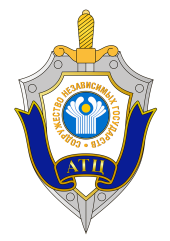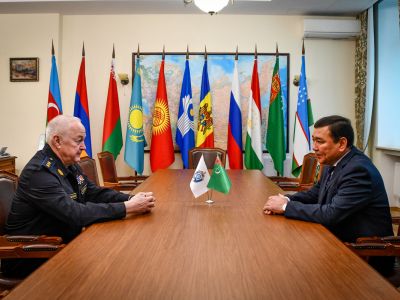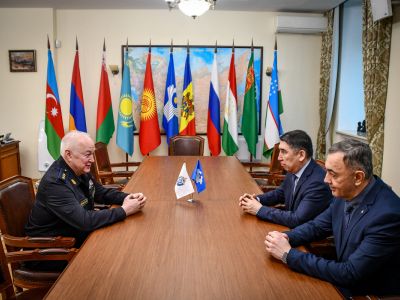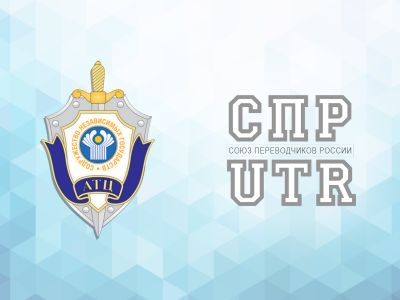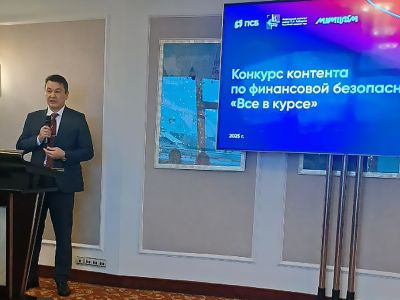International Cooperation
Building an effective system of anti-terrorism cooperation is impossible without uniting the efforts of all actors involved in countering terrorism and extremism, including competent authorities of the states, statutory and sectoral bodies of the CIS, specialized international and regional organizations, and civil society institutions.
Realizing the importance of this line of activity, the CIS ATC is committed to establishing and developing anti-terrorism cooperation.
Мероприятия
International and regional organizations
International and regional organizations
Civil society institutions
Civil society institutions
Сompetent authorities of the CIS member-states
Realizing the importance of this line of activity, the CIS ATC is committed to establishing and developing anti-terrorism cooperation.
CIS bodies
Building an effective system of anti-terrorism cooperation would be impossible without using the capacities of the CIS bodies and their working structures.
Over the years of the Center’s work, the following CIS bodies have become its reliable partners:
International and regional organizations
The key partner international organizations are
UN SECURITY COUNCIL COUNTER-TERRORISM COMMITTEE (UNSC CTC)
UNITED NATIONS OFFICE ON DRUGS AND CRIME
INTERPOL
ORGANIZATION FOR SECURITY AND CO-OPERATION IN EUROPE
THE REGIONAL ANTI-TERRORIST STRUCTURE OF SHANGHAI COOPERATION ORGANIZATION (RATS SCO)
COLLECTIVE SECURITY TREATY ORGANIZATION
COUNCIL OF EUROPE COMMITTEE ON COUNTER-TERRORISM (CDCT)
EURASIAN GROUP ON COMBATING MONEY LAUNDERING AND FINANCING OF TERRORISM (EAG)
CENTRAL ASIAN REGIONAL INFORMATION AND COORDINATION CENTRE FOR COMBATING THE ILLICIT TRAFFICKING OF NARCOTIC DRUGS, PSYCHOTROPIC SUBSTANCES AND THEIR PRECURSORS (СARICC)
Cooperation with the above partners is built on the agreements, treaties, memorandums and protocols. The Center also enjoys an observer status in INTERPOL, CDCT and EAG.
CIS ATC actively interacts with the following counter-terrorism structures of the UN: Office of Counter-Terrorism (UNOCT), Executive Directorate of the Security Council Counter-Terrorism Committee (CTED), Analytical Support and Sanctions Monitoring Team of the SC Committee established pursuant to resolutions 1267 (1999), 1989 (2011) and 2253 (2015), and SC Committee established pursuant to resolution 1988 (2011) which monitor implementation of the sanctions against international terrorist organizations ISIL, Al-Qaeda and Taliban.
One of the priority areas of the CIS ATC’s cooperation with the UN counter-terrorism structures includes interaction with the UN Regional Center for Preventive Diplomacy for Central Asia (UNRCCA) which annually holds meetings to coordinate efforts of the specialized international organizations operating in the Central Asian countries.
In 2016, the CIS ATC became a member of the CTED’s Global Research Network, and in 2021 it became a member of the UN Global Network of Experts on the Protection of Vulnerable Targets against Terrorist Attacks established by the UNOCT within the framework of the Global Program on the Protection of Vulnerable Targets.
The Center is invited to deliver statements during thematic briefings
of the UN SC sanctions committees on ISIL, Al-Qaeda and Taliban. The experts of the Center join the assessment visits of the Executive Directorate of the Counter-Terrorism Committee, conducted with the purpose of monitoring and promoting the implementation of the UN Security Council's counter-terrorism resolutions. The Center’s information is included in the CTED’s final reports for the Security Council.
The Center cooperates with the OSCE through the Anti-Terrorist Unit of the Transnational Threats Department and by participating in events of the OSCE Secretariat in Central Asia. The Center regularly prepares and shares its inputs to the OSCE Counter-Terrorism Network Newsletter.
The Center was granted an observer status in the Committee of Experts on Terrorism of the Council of Europe (CODEXTER, now known as CDCT). The Center actively participates in the meetings of the Committee and its working groups.
Cooperation with the Eurasian Group on Combating Money Laundering and Financing of Terrorism is developing intensively. The Center’s officers take part in EAG’s plenary meetings, seminars to exchange best practices of implementation of the FATF requirements in identifying terrorist virtual assets, as well as meetings of the Working groups aimed to conduct researches and issue recommendations on risk-assessment of terrorism financing to the countries of the Eurasian area.
The CIS ATC’s cooperation with the International Criminal Police Organization - INTERPOL is built on the Memorandum of Mutual Understanding in Terms of Cooperation and Interaction in the Field of Counter-Terrorism Information Sharing. The Center takes part in INTERPOL European Regional Conferences and General Assemblies in the observer capacity, as well as the Kalkan project aimed at exchanging information on terrorist organizations and associated individuals.
Since 2008 the Center operates the INTERPOL's user terminal providing on-line access to the Global Police Communication System I-24/7.
The key regional partners of the CIS ATC are SCO RATS and CSTO. The bilateral cooperation rests on the agreements signed in 2006 (new edition in 2023) and 2013, respectively, as well as the Memorandum of Cooperation and Interaction between CIS ATC, CSTO Secretariat and SCO RATS as of May 28, 2018, within the framework of which regular meetings of a permanent expert group are held.
Elaboration of the Agreed position of SCO RATS, CIS ATC and CSTO Secretariat on countering terrorism and extremism signed on February 16, 2022 became a notable result of this work.
As part of bilateral cooperation, the Center takes part in the working group on Afghanistan at the CSTO Council of Foreign Ministers and annual conferences of the SCO RATS.
Civil society institutions
The CIS ATC employs comprehensive approach to solving the assigned tasks and strengthens interaction with civil society institutions by developing cooperation with the Moscow State Linguistic University, Moscow State University named after M.V. Lomonosov, Institute of State and Law of the Russian Academy of Science, Academy of Military Science, Russian State University of Oil and Gas named after I.M. Gubkin, etc.
The main form of such interaction, which allows to involve in this process both representatives of the competent authorities and non-state educational and public structures are international scientific and practical conferences on the problems of countering terrorism.
Besides, the Center in cooperation with MSLU annually holds a contest of student initiatives on countering terrorist ideas.
RESEARCH INSTITUTE FOR CIS SECURITY PROBLEMS
MOSCOW STATE LINGUISTIC UNIVERSITY
